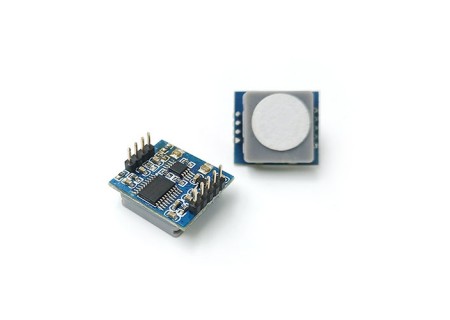Air quality detector for home
-500x500.jpg)
Introduction
Indoor air quality is a crucial aspect of our overall well-being, as we spend a significant amount of time inside our homes. To ensure a healthy living environment, it is important to monitor and manage the air quality effectively. This is where air quality detectors for homes come into play. These devices provide valuable insights into the levels of pollutants and contaminants present indoors, empowering homeowners to take necessary measures to improve the air they breathe. In this article, we will explore the significance of air quality detectors for home use and how they can contribute to a healthier living space.
Importance of Indoor Air Quality
Indoor air quality can have a profound impact on our health and comfort. Poor air quality can lead to various respiratory issues, allergies, and even long-term health problems. Common indoor pollutants include volatile organic compounds (VOCs), particulate matter, carbon monoxide, and formaldehyde. Identifying and addressing these pollutants is vital for maintaining a healthy home environment. Air quality detectors for homes offer a proactive approach to monitor and manage indoor air quality. By providing real-time measurements and alerts, these devices enable homeowners to identify and mitigate potential risks and take appropriate actions to improve the air quality in their homes.
Functionality of Air Quality Detectors
Air quality detectors for homes are designed to measure and monitor various parameters that affect indoor air quality. These detectors utilize advanced sensors and technologies to accurately assess the levels of pollutants and contaminants present in the air. Common measurements include levels of VOCs, particulate matter (PM2.5 and PM10), carbon dioxide (CO2), humidity, temperature, and more. The detectors provide real-time data and often offer visual indicators or digital displays to make it easier to interpret the readings.
Some air quality detectors also offer additional features such as Wi-Fi connectivity, mobile app integration, and historical data tracking. These features allow homeowners to access their air quality data remotely and track trends over time. By analyzing this data, they can identify patterns, potential sources of pollution, and make informed decisions to improve air quality.
Benefits of Air Quality Detectors for Home Use
Investing in an air quality detector for home use can bring numerous benefits. Firstly, it empowers homeowners with knowledge about the specific pollutants present in their indoor environment. This knowledge enables them to take targeted actions to reduce or eliminate the sources of pollution. For instance, if high levels of VOCs are detected, homeowners can identify and replace products such as cleaning supplies or paints that may be emitting harmful chemicals.
Secondly, air quality detectors provide real-time monitoring and alerts. This means that if pollutant levels exceed safe thresholds, the detector will notify homeowners, allowing them to take immediate action. This timely intervention can prevent potential health risks and ensure a safer living environment for everyone in the household.
Furthermore, air quality detectors promote awareness and education about indoor air quality. By understanding the impact of various pollutants on health, homeowners can make informed choices to improve air quality, such as improving ventilation, using air purifiers, or implementing proper filtration systems.
Conclusion
In conclusion, air quality detectors for home use play a crucial role in monitoring and improving indoor air quality. By providing real-time measurements, alerts, and data analysis, these devices empower homeowners to take proactive steps towards creating a healthier living environment. With the growing awareness of the significance of indoor air quality, investing in an air quality detector is a valuable decision that can positively impact the well-being of individuals and their families. Prioritizing clean and healthy indoor air should be a top consideration for every homeowner, and air quality detectors serve as invaluable tools in achieving this goal.







-450x320.jpg)
-450x320.jpg)

-450x320.jpg)
-450x320.jpg)